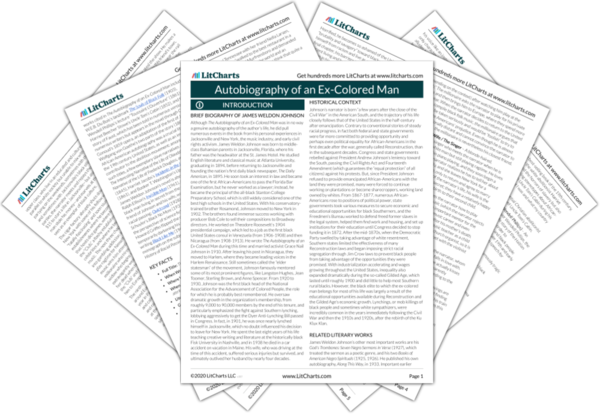Faust is an appropriate backdrop for this encounter: there is a clear analogy between Faust’s deal with the devil in exchange for absolute knowledge and power and the narrator’s ultimate decision to live as white. Again, he and his father meet under the guise of music, which frames all the narrator’s most important emotional experiences. He “could not speak” not only because of the performance, but also because his very existence is a taboo: he could never reveal his father’s interracial relationship to his half-sister.
